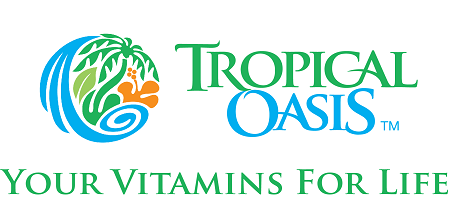
A person’s appetite is most commonly understood as a person’s desire to eat food. A loss of appetite occurs when you have a low desire to eat, and there are many different factors that may cause this ranging from stress, lack of sleep, and mental illness to a variety of physical medical conditions. If a low appetite persists for more than a couple of days, this can cause weight loss or malnutrition.
While some people may welcome a loss of appetite as a welcome way to cut calories and lose weight (in fact, there are many high-quality supplements specifically designed for that goal), low appetites can be unwelcome or even dangerous for others. Just as there are a number of factors that contribute to low appetites, there are many reasons that people may wish to increase their appetite, such as weight management for those who are underweight or trying to gain weight to build muscle mass.
For those who wish to increase their appetite, there are a number of dietary supplements, medications, and vitamins for appetite enhancement called appetite stimulants. These range from prescription medications to multivitamins containing vitamins with appetite increasing properties. Additionally, certain lifestyle changes can have positive effects on people’s appetites.
While prescription appetite stimulant medications can be very successful in achieving their goal, these medications often come with a range of side effects that lead people to look for natural alternatives to increase their hunger levels and satisfy their body needs.
In this article, we will cover some of the most common Food and Drug Administration (FDA) approved appetite stimulants and the full range of natural alternatives for increasing appetites. First, we go over some of the common causes of decreased appetite. Then we will briefly provide our list of prescription appetite stimulants. This will be followed by our of the best vitamins to increase appetite. After this, we will finish up with useful lifestyle strategies for making sure that you can increase your food intake and get all of the necessary nutrients and calories from balanced meals.
Common Causes of Poor Appetites
Loss of appetite can occur for people of all age groups, and in extreme cases, it is referred to as anorexia nervosa, a psychiatric condition that is part of a group of eating disorders. For many people, their poor appetites do not extend to an eating disorder but can still have a number of unwanted and frustrating effects. Some causes for decreased appetite are more generalizable, while other causes appear more frequently in specific populations, such as young children or older adults.
The most common reasons for decreased appetite, in general, include psychological conditions and disorders, such as stress, depression, and anxiety; cancer; gastrointestinal disorders, such as peptic ulcer disease and ulcerative colitis; chronic diseases, such as cystic fibrosis and Parkinson’s disease; medications, such as laxatives, prescription amphetamines, and chemotherapy; increased age; slowed metabolism; decreased activity levels; hormonal changes; and vitamin deficiencies.
There are a number of factors that play into low appetites for toddlers and young children that are not as common for other populations. These include undiagnosed food allergies; familial stress; excessive intake of juice and milk between meals; a developmental desire for autonomy and rejection of authority; genetic predisposition; and unstructured meal times.
Likewise, for older adults, there are a number of factors that contribute to poor appetites specific to people within this age range. These age-specific factors include a slowed metabolism due to age; dementia; depression; a decreased sense of taste or smell; gastrointestinal changes; decreased activity and energy expenditure; hormonal changes; heart disease; respiratory disease; and side effects due to various medications, such as some anti-depressants or anti-Parkinson’s disease medications.
Whatever the causes for a loss of appetite, various vitamins, minerals, and herbs have been shown to be effective means for stimulating the appetite and, in some cases, addressing vitamin deficiencies that are the cause of a loss of appetite in the first place.

Food and Drug Administration Approved Prescription Appetite Stimulants
1. Megestrol Acetate
Megestrol acetate is a progesterone based medication that can be prescribed to boost appetites in those who are dealing with a loss of appetite from medical conditions, such as anorexia, cancer, HIV, or AIDs.
Many people who deal with these conditions have found Megestrol to be very beneficial for their appetites. However, there are a number of possible side-effects that may occur.
These possible side effects include upset stomach, mood changes, as well as some rarer serious side effects, such as swelling due to fluid buildup in body tissues, the onset or worsening of diabetes, or blood clots.
2. Oxandrolone
Oxandrolone is an anabolic steroid that does not stimulate the appetite so much as it helps people regain the weight lost after surgery, severe trauma, or chronic infections, and it is sometimes prescribed in conjunction with appetite stimulants for those who are underweight due to various medical conditions.
Like megestrol, oxandrolone medication can come with a number of side effects, including acne, changes in sexual desire, deepening voice, excessive hair growth, irregular menstrual cycle, mood changes, and upset stomach.
3. Dronabinol
Dronabinol is a cannabinoid that doctors often prescribe to treat loss of appetite due to anorexia, cancer, and chemotherapy. Side effects of dronabinol include confusion, dizziness, drowsiness, hallucinations, and bad moods.
Vitamins to Increase Appetite
There are certain reasons that many people may choose to go with prescription appetite stimulants, especially if the cause of their loss of appetite is due to serious medical conditions.
Of course, many doctors, dieticians, and those acquiring the best nutrition certification will find it appealing to curb their poor appetite (or that of their patients) with a variety of natural remedies and vitamins that in some cases may better get to the root of the problem while avoiding the side effects of prescription medications. Moreover, for those who take prescription appetite stimulants, these vitamins for appetite enhancement can be taken in conjunction with their medicines for the optimal results.
Below we list some of the best vitamins to increase your appetite, many of which you can get either through dietary supplements or in the food that you eat.
1. Zinc
Zinc is an essential mineral involved in numerous aspects of cellular metabolism with vital roles to play in the maintenance of proper immune function, wound healing, DNA synthesis, protein synthesis, and cell division. Zinc is also required for a proper sense of taste and smell.
A daily intake of zinc is required because the body has no specialized storage system. When you get enough zinc, this can have many great benefits for the body, including boosts to the immune system through increased activity of T cells; accelerated wound healing; a reduction in risk factors for age-related diseases, such as pneumonia, infection, and age-related macular degeneration; and decreased inflammation and oxidative stress in the body.
On the other hand, zinc deficiency can cause symptoms such as poor immune function, loss of appetite, and changes in taste perception (which may also contribute to a loss of appetite).
If you are experiencing a loss of appetite, you may want to up your zinc uptake since research suggests that zinc supplementation may increase the appetite in those with zinc deficiencies.
Other dietary sources of zinc include meat (especially red meat), shellfish, legumes, seeds, nuts and nut butter, dairy, eggs, whole grains, dark chocolate, and some vegetables, such as potatoes, green beans, and kale.
2. Thiamine (Vitamin B1) and Other B Vitamins
Thiamine, also known as vitamin B1 is part of the B-vitamin complex that plays a number of important roles in the body, especially in the metabolization and energy production processes of the cells.
Research has shown that thiamine deficiency causes appetite loss, weight loss, confusion, and a range of other neurological symptoms. Thus, making sure that you get enough thiamine in your diet can be a great way to stimulate your appetite.
While thiamine, which plays an essential role in helping convert nutrients into energy, is the main B-vitamin that people think about when it comes to appetite stimulation, other B-vitamins can also play a role as well since one of the main causes for poor appetite in older adults is a reduction in metabolism.
Riboflavin (B2) helps convert food to energy and also acts as an antioxidant; Niacin (B3) plays a role in cellular signaling, metabolism, and DNA production; Biotin (B7) is essential for the metabolism of carbohydrates and fats, in addition to the roles it plays in the regulation of gene expression; Folate (B9) and pyridoxine (B6) are both highly involved in the metabolization of amino acids.
Because of the roles that many of the B-vitamins play in maintaining a healthy metabolism, ensuring that you get enough of not only thiamine but also many of the other b-vitamins can be very beneficial to increasing your appetite and food intake. While you can get many of the B-vitamins through dietary sources, one of the best ways to get enough of these essential vitamins is through a b-complex supplement, such as Tropical Oasis’ Premium Liquid B-Complex formula with absorption rates of up to 96 percent!
3. Fish Oil (Omega-3 Fatty Acids)
When it comes to fats, there is at least one healthy type of fat that you do not want to cut back on: the omega-3 fatty acids, Eicosapentaenoic acid (EPA), docosahexaenoic acid (DHA), and Alpha-linolenic acid (ALA). These essential fats have many benefits for the body and brain, including fighting depression and anxiety; improving eye health; promoting brain development; improving risk factors for heart disease; fighting sources of inflammation in the body; fighting autoimmune diseases; improving joint and bone pain; and promoting healthy skin, to name a few.
On top of all the great benefits of these fatty acids, research also suggests that the Omega-3s, DHA and EPA, may improve people’s appetite and their desire to eat.
The greatest sources of omega-3s come from fish, especially cold-water fatty fish, such as salmon, mackerel, tuna, and herring. For this reason, vegetarians and vegans may wish to get their omega-3s from various dietary supplements, such as fish oil or krill supplements. Other non-meat sources of omega-3s include nuts and seeds, such as flaxseed, chia seeds, and walnuts, plant oils, and soybeans.
4. Echinacea
Echinacea is a herb typically used for its ability to boost the immune system and help treat symptoms of sicknesses, like the common cold. More recently, people have begun to take this herb as an appetite stimulant since studies have shown that echinacea contains appetite enhancing compounds called alkylamines. A variety of echinacea dietary supplements and teas can be taken for these purposes.

Lifestyle Practices to Enhance Appetite and Increase Food Intake
In addition to the vitamins listed above, there are a number of practices when it comes to how you eat, the types of foods you eat, and the activities that you engage in that can have beneficial effects on increasing your appetite. Taking vitamins and supplements that stimulate appetite in conjunction with the implementation of some of these practices can form a double-pronged approach for the optimal results.
1. Regular Exercise
Regular exercise has a number of health benefits ranging from better moods and sleeps to boosted metabolism and better weight management. Physical activity has been shown to influence several hunger-stimulating processes in your body, such as increased metabolic rate, increased muscle mass, and beneficial changes in hormone production.
In addition to boosting these hunger-stimulating processes, exercise and frequent activity burn calories to sustain your energy levels which often has the effect of boosting your appetite, as your body needs food to replenish the calories that have been burned.
It is important to remember that infrequent activity is one of the main causes of low appetite, especially in older adults, so increasing the amount you exercise to a few times a week can really work wonders.
2. Eat Smaller Meals More Frequently
When you have a poor appetite, eating three large meals a day can seem like an unwelcome task. A great way to make eating easier is to switch from three large meals to five or six smaller meals and frequent snacking. This will allow you to get the same amount of food and nutrients in a far more manageable manner. Making sure that your kitchen is stocked up on healthy snacks can be a great way to keep you motivated.
3. Sneak More Calories into Your Meals
People who have poor appetites tend to opt for smaller meals which often do not have enough calories, but a great way to up your calorie intake is to keep the meal small while adding more high-calorie foods into the mix. For example, you could cook your oatmeal with whole milk instead of water, eat your apple with a side of peanut butter, or add avocados, full of healthy fats, into your salad.
4. Schedule Your Mealtimes
People often eat when their body tells them to. We know its time to eat lunch because we get the feeling of hunger in our stomachs. However, people who experience a loss of appetite will often not get these hunger cues and are more likely to miss important meals.
Instead of depending on their body to let them know when to eat, people with poor appetites can ensure that they are getting the right food intake by making a schedule with times of when they are supposed to eat along with reminders to keep them on schedule.
5. Reduce the Amount of Fiber in Your Diet
Even though getting enough fiber is recommended for balanced diets, high fiber foods have been proven to increase and prolong feelings of fullness and decrease calorie overall calorie intake. For this reason, if you are experiencing a loss of appetite, you may want to consider a lower-fiber diet to increase your hunger levels and gain weight.
6. Drink Some of Your Calories
Those who do not have a healthy appetite may find that it is easier to drink liquids than to eat food. For this reason, you may want to replace some of your meals with nutrition, high-calorie drinks packed with fruits and vegetables. Protein shakes, smoothies, milkshakes, and juices can all be great options for increasing your calories and ensuring that you are getting all the nutrients your body needs to function properly.
7. Limit Liquids with Meals
While nutritious, high-calorie drinks can sometimes be great replacements for meals altogether, research has shown that drinking a significant amount of fluids prior to or during meals can significantly diminish your appetite. For example, some studies show that consuming water prior to meals can reduce calorie intake, while other studies have shown that refraining from drinking water prior to your meal can increase your calorie intake by 8.7 percent on average.
Getting Your Appetite Back On Track
There are many factors that contribute to a loss of appetite, ranging from social circumstances to a variety of medical conditions and vitamin deficiencies. Dealing with low hunger levels can be extremely frustrating and can have the effect of causing nutrient deficiencies, weight management problems, and interference in muscle building goals. While some people may have their physicians prescribe them appetite stimulants, there are also a number of vitamins for appetite enhancement and lifestyle changes that can be just what you need to get your appetite back on track. When it comes to the best high-quality vitamins to increase your appetite, Tropical Oasis’ wide range of highly absorbable liquid vitamins has got you covered!

 GMP CERTIFIED
GMP CERTIFIED